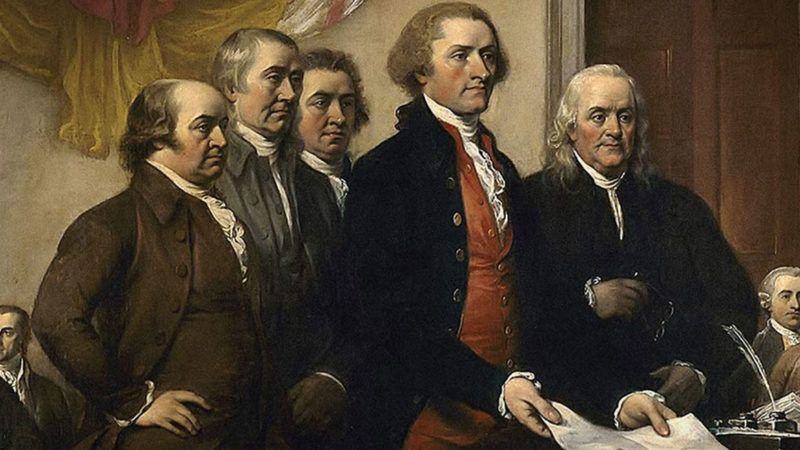America on Trial

In the fifth century A.D., Pope Gelasius declared that Christians have dual citizenship under "two sovereigns," one divine and one temporal, that must not be combined.
In the 11th century, a monk and future bishop argued that people are released from submission to any king who "transgress[es] the contract by virtue of which he is chosen."
In the 12th century, the canonist Gratian wrote that "princes are bound by and shall live according to their laws"—a departure from the previous understanding that royals were above legal formalities.
In the 13th century, St. Dominic asked that his 12 monasteries elect delegates to convene and write the rules that would govern the Dominican order.
In America on Trial, Westminster Institute Director Robert R. Reilly cites each of these examples to show that such concepts as representative democracy, consent of the governed, separation of church and state, and the right to resist tyranny grew out of the fertile soil of classical Christianity. The book is a rejoinder to a cadre of conservative scholars who have called into question the moral underpinnings of the American experiment.
For critics such as Notre Dame's Patrick Deneen, the liberal principles on which the United States was founded are products of post-Enlightenment modernity representing a decisive and misguided break with the Judeo-Christian tradition. Reilly compellingly asserts that the opposite is true: The American project is an application of ideas whose roots are in ancient Greece, the Hebrew Bible, and medieval Christendom.
There can be no Declaration of Independence without natural law, Reilly suggests, and no natural law without the revolutionary notion that God made man in his own image and did not wish him "to have dominion," as St. Augustine put it, "over those who are by nature its equal, that is, its fellow man."


Show Comments (128)